Which rights do you have during a foreclosure?
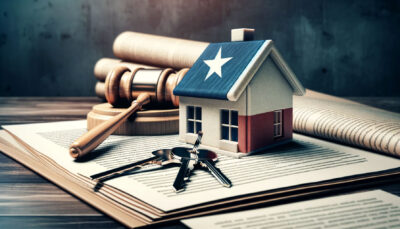 With foreclosures in the Dallas area on the rise, we are hearing more and more questions about the rights that homeowners have during the foreclosure process. Foreclosure is obviously a challenging and confusing time, and understanding your rights is crucial for navigating the process effectively. Since we know more people are searching for these answers, I wanted to outline the key rights you have as a homeowner in Texas during foreclosure.
With foreclosures in the Dallas area on the rise, we are hearing more and more questions about the rights that homeowners have during the foreclosure process. Foreclosure is obviously a challenging and confusing time, and understanding your rights is crucial for navigating the process effectively. Since we know more people are searching for these answers, I wanted to outline the key rights you have as a homeowner in Texas during foreclosure.
Right to Notice
Notice Before Acceleration: In Texas, before your lender can accelerate your loan (demand the full balance), they must provide you with a notice that gives you at least 20 days to “cure the default” (the official term for paying off the overdue amount and late fees). (more…)

 If you’re struggling with overwhelming debt and considering bankruptcy, the biggest question in your mind is probably “Which bankruptcy lawyer should I go to?” It’s one of the most important decisions to make – filing bankruptcy will have a significant impact on your life. Bankruptcy law is very complex, with many twists and turns, and traps for the unwary. If you need to file bankruptcy, choosing the right lawyer is critical.
If you’re struggling with overwhelming debt and considering bankruptcy, the biggest question in your mind is probably “Which bankruptcy lawyer should I go to?” It’s one of the most important decisions to make – filing bankruptcy will have a significant impact on your life. Bankruptcy law is very complex, with many twists and turns, and traps for the unwary. If you need to file bankruptcy, choosing the right lawyer is critical.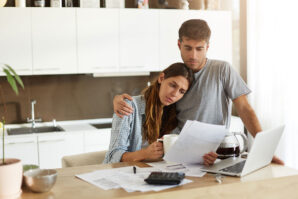 Whether we are in a recession or not, it is not easy to earn enough to live comfortably in today’s world. You would be surprised to learn how many Dallas-area residents struggle on a monthly basis to simply make ends meed. Adding children or additional vehicle payments to the mix make a difficult situation even tougher. All it takes is one unexpected expense to send finances (and debt) spinning out of control.
Whether we are in a recession or not, it is not easy to earn enough to live comfortably in today’s world. You would be surprised to learn how many Dallas-area residents struggle on a monthly basis to simply make ends meed. Adding children or additional vehicle payments to the mix make a difficult situation even tougher. All it takes is one unexpected expense to send finances (and debt) spinning out of control.
 We can talk all day long about our experience helping local Dallas residents get a fresh start through bankruptcy, but sometimes our clients say it better than we do.
We can talk all day long about our experience helping local Dallas residents get a fresh start through bankruptcy, but sometimes our clients say it better than we do.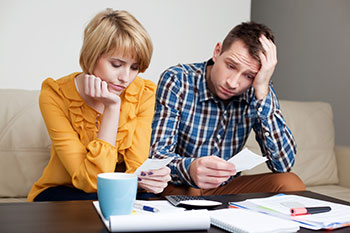 Filing for bankruptcy is a huge decision, and usually it has to be made under pretty extreme stress. Your circumstances are unique – so the best way to know if you should file is to call us at 214-760-7777 for a free consultation. The pandemic and ensuing lockdowns have made the situation even more stressful for many DFW area residents. This post will help answer a few high level questions, but it is always better to talk to an expert to get answers about your specific situation.
Filing for bankruptcy is a huge decision, and usually it has to be made under pretty extreme stress. Your circumstances are unique – so the best way to know if you should file is to call us at 214-760-7777 for a free consultation. The pandemic and ensuing lockdowns have made the situation even more stressful for many DFW area residents. This post will help answer a few high level questions, but it is always better to talk to an expert to get answers about your specific situation.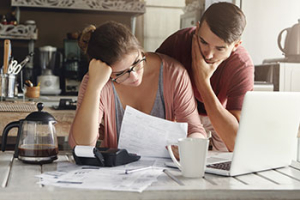 Over the last month, over
Over the last month, over 
 If you’re struggling with overwhelming debt, you’re not alone. Thousands of Dallas area residents have filed for bankruptcy so far this year.
If you’re struggling with overwhelming debt, you’re not alone. Thousands of Dallas area residents have filed for bankruptcy so far this year.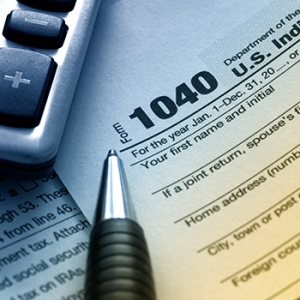 It’s tax day, and that means many Americans are finding out that they owe even more money, thanks to the IRS. We always get questions at this time of year about how filing for bankruptcy will affect a family finances. In our last blog post, we discussed what can happen with any potential
It’s tax day, and that means many Americans are finding out that they owe even more money, thanks to the IRS. We always get questions at this time of year about how filing for bankruptcy will affect a family finances. In our last blog post, we discussed what can happen with any potential